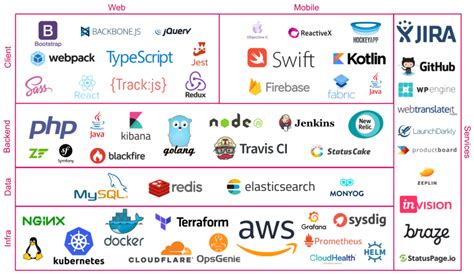The accounting industry has undergone a significant transformation in recent years, driven by advancements in technology. Gone are the days of manual data entry and tedious paperwork. Today, accounting professionals rely on a range of innovative tools to streamline their workflows, boost productivity, and improve client satisfaction. In this article, we will explore the 7 essential tools that should be part of your accounting tech stack.

What is an Accounting Tech Stack?
An accounting tech stack refers to the collection of software applications and tools used by accounting professionals to manage their workflows, collaborate with clients, and stay compliant with regulatory requirements. A well-designed tech stack can help accountants automate routine tasks, reduce errors, and provide more valuable services to their clients.
Benefits of an Accounting Tech Stack
The benefits of an accounting tech stack are numerous. Some of the most significant advantages include:
- Increased efficiency: Automation of routine tasks frees up time for more strategic and high-value work.
- Improved accuracy: Reduced manual data entry minimizes errors and ensures compliance with regulatory requirements.
- Enhanced collaboration: Cloud-based tools enable seamless communication and collaboration with clients and team members.
- Scalability: A well-designed tech stack can grow with your business, adapting to changing needs and volumes.
7 Essential Tools for Your Accounting Tech Stack
Now that we have explored the concept of an accounting tech stack, let's dive into the 7 essential tools that should be part of your toolkit.
1. Cloud Accounting Software
Cloud accounting software is the foundation of any modern accounting tech stack. These tools provide a centralized platform for managing financial data, automating tasks, and collaborating with clients. Some popular cloud accounting software options include QuickBooks Online, Xero, and Zoho Books.

2. Time Tracking and Billing Tools
Time tracking and billing tools are essential for accounting professionals who need to track time spent on client projects and generate invoices. These tools help streamline workflows, reduce administrative burdens, and improve client satisfaction. Some popular time tracking and billing tools include TSheets, Harvest, and Billable.
3. Document Management Software
Document management software is critical for accounting professionals who need to store and manage large volumes of financial documents. These tools provide a secure and centralized platform for storing and retrieving documents, reducing administrative burdens and improving compliance. Some popular document management software options include SharePoint, Dropbox, and Google Drive.

4. Client Portal Software
Client portal software provides a secure and convenient way for clients to access financial documents, communicate with accountants, and track project progress. These tools enhance client satisfaction, reduce administrative burdens, and improve collaboration. Some popular client portal software options include Client Portal, AccountantsWorld, and SmartVault.

5. Tax Preparation Software
Tax preparation software is essential for accounting professionals who need to prepare and file tax returns for clients. These tools provide a centralized platform for managing tax data, automating calculations, and generating reports. Some popular tax preparation software options include TurboTax, TaxAct, and Drake Software.

6. Auditing and Compliance Tools
Auditing and compliance tools are critical for accounting professionals who need to ensure regulatory compliance and detect financial irregularities. These tools provide a centralized platform for managing audit data, automating testing, and generating reports. Some popular auditing and compliance tools include AuditBoard, SOXHUB, and ACL.

7. Data Analytics Tools
Data analytics tools are essential for accounting professionals who need to gain insights into financial data, identify trends, and predict future outcomes. These tools provide a centralized platform for managing data, automating analysis, and generating reports. Some popular data analytics tools include Excel, Tableau, and Power BI.

Conclusion
In conclusion, a well-designed accounting tech stack is essential for modern accounting professionals. By incorporating these 7 essential tools into your toolkit, you can streamline workflows, improve accuracy, and provide more valuable services to your clients. Remember to regularly review and update your tech stack to ensure you stay ahead of the curve and remain competitive in the accounting industry.
Gallery of Accounting Tech Stack Tools












What is an accounting tech stack?
+An accounting tech stack refers to the collection of software applications and tools used by accounting professionals to manage their workflows, collaborate with clients, and stay compliant with regulatory requirements.
What are the benefits of an accounting tech stack?
+The benefits of an accounting tech stack include increased efficiency, improved accuracy, enhanced collaboration, and scalability.
What are the essential tools for an accounting tech stack?
+The 7 essential tools for an accounting tech stack include cloud accounting software, time tracking and billing tools, document management software, client portal software, tax preparation software, auditing and compliance tools, and data analytics tools.
How can I choose the right tools for my accounting tech stack?
+When choosing the right tools for your accounting tech stack, consider your specific needs and requirements, research and compare different options, and seek advice from industry experts.
How can I implement an accounting tech stack in my practice?
+To implement an accounting tech stack in your practice, start by identifying your needs and goals, selecting the right tools, and developing a plan for implementation and integration.
